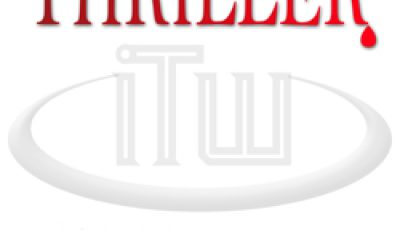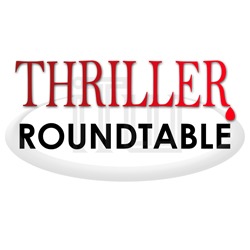

February 28th to March 6th: “What is your favorite thriller sub-genre? Why?”
 Do you prefer medical thrillers or science thrillers? Espionage thrillers or romantic suspense thrillers? Join ITW members Susanna Kearsley, LJ Sellers, Matt Hilton, Mark Alpert, J. H. Bográn, CE Lawrence and Aileen Baron as they discuss their favorite thriller sub-genres during this week’s Thriller Roundtable!
Do you prefer medical thrillers or science thrillers? Espionage thrillers or romantic suspense thrillers? Join ITW members Susanna Kearsley, LJ Sellers, Matt Hilton, Mark Alpert, J. H. Bográn, CE Lawrence and Aileen Baron as they discuss their favorite thriller sub-genres during this week’s Thriller Roundtable!
All ITW members can sign up for the ITW Roundtable discussions by contacting Dan Levy. Click the Roundtable link in the members-only section of the ITW website to see the list of upcoming questions, or to learn more. There’s no better way to connect with other ITW authors, readers, and fans!
~~~~~~~~
Mark Alpert is the author of the international bestselling thriller FINAL THEORY and its sequel, THE OMEGA THEORY, which will be published in February. A longtime science journalist and contributing editor at Scientific American, he specializes in demystifying esoteric theories and technologies by weaving them into the plots of his thrillers.
J. H. Bográn, born and raised in Honduras, is the son of a journalist; he ironically prefers to write fiction rather than fact. José is the author of TREASURE HUNT, the first in the series of a professional thief that goes by the handle of The Falcon. Other works include short stories, contributor to The Big Thrill magazine, co-screenwriter for two TV serials and movie reviews for Honduran newspaper La Prensa.
C.E. Lawrence is the byline of a New York-based suspense writer, performer, composer and prize-winning playwright whose previous books have been praised as “lively. . .” (Publishers Weekly); “constantly absorbing. . .” (starred Kirkus Review); and “superbly crafted prose” (Boston Herald). SILENT SCREAMS and SILENT VICTIM are the first two books in her Lee Campbell thriller series. SILENT KILLS comes out later this year. Her other work is published under the name of Carole Bugge.
LJ Sellers is an award-winning journalist, editor, and novelist based in Eugene, Oregon. She writes the highly praised Detective Jackson series: The Sex Club, Secrets to Die For, Thrilled to Death, and Passions of the Dead. She also has two standalone thrillers, The Baby Thief and The Suicide Effect. When not plotting murders, she enjoys performing stand-up comedy, cycling, gardening, reading crime stories, social networking, attending writers/readers conferences, hanging out with family, and editing fiction manuscripts.
Matt Hilton is the author of the Joe Hunter series, including Dead Man’s Dust and Judgment & Wrath. Matt founded the respected Bushidokan Dojo before moving into the Police force. He has experienced countless real life fights, arrests and high-tension situations in his role as Police Officer and private sector Security Expert. This gives a very real feel to the action sequences in his books and a level of authenticity respected by those in the know.
Aileen Baron is the author of the Lily Sampson archeological mystery series Scorpion’s Bite, The Gold of Thrace, The Torch of Tangiers, and The Fly Has a Hundred Eyes. Aileen taught for twenty years in the Department of Anthropology at California State University, Fullerton. Many years of archaeological fieldwork took her all over the world, especially to the Middle East. It was during writing classes at the University’s distinguished writing program, Aileen was told to stop everything and start writing.
Susanna Kearsley is from Canada and writes romantic suspense with elements of historical mystery. Her first novel, Undertow, was published in 1993. Since then she’s written eight more books, including, Every Secret Thing – written under the name Emma Cole.
- LAST GIRL MISSING with K.L. Murphy - July 25, 2024
- CHILD OF DUST with Yigal Zur - July 25, 2024
- THE RAVENWOOD CONSPIRACY with Michael Siverling - July 19, 2024
